Politics
INEC to phase out PVCs, plans Diaspora voting INEC Chairman, Mahmood Yakubu
Published
4 months agoon
By
Ekwutos Blog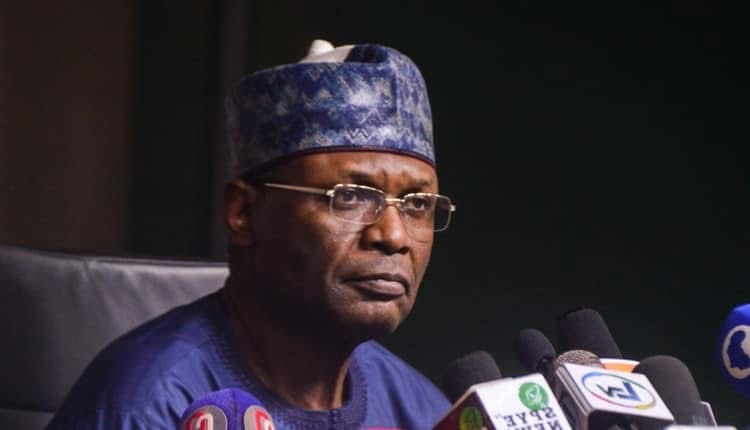
The Independent National Electoral Commission has proposed sweeping reforms to improve the country’s electoral system, following lessons learnt from the 2023 general elections and subsequent off-cycle polls.
Among the reforms being proposed are diaspora voting and phasing out of the use of Permanent Voter Card during elections.
The INEC Chairman, Prof, Mahmood Yakubu, disclosed these on Thursday in Abuja during a meeting with Resident Electoral Commissioners.
He stated that INEC would soon present these proposals and more to the relevant committees in the Senate and House of Representatives.
He said, “Among the major highlights of the commission’s recommendations is the imperative of legal clarity in result management, with regard to manual transfer versus the electronic transmission of results.
“The commission also believes that with the introduction of the Bimodal Voter Accreditation System, the use of the Permanent Voters’ Cards as the sole means of identification for voter accreditation on election day should be reviewed. Those who already have the PVCs can still use them to vote, but going forward, computer-generated slips issued to the voter or even downloaded from the commission’s website will suffice for voter accreditation.
“This will not only save cost, it will also eliminate the issues around the collection of PVCs and the diabolical practice of buying up the cards from voters in order to disenfranchise them.
There are also recommendations in support of diaspora voting, the unbundling of the commission with the establishment of electoral offences tribunal and a separate agency to handle the registration and regulation of political parties.
“Similarly, the commission will step up action on voter access and distribution to polling units.”
INEC Chairman explained that these recommendations were captured in a 524-page review report on the 2023 general elections
He said, “With the conclusion of five major off-cycle governorship elections and nine out of 21 bye-elections since the 2023 general elections, this is the most appropriate time for us to commence the implementation of the recommendations arising from our review of the general elections.
“From the internal and external engagements, the commission has identified 142 recommendations dealing with the general state of preparedness, voter management, voter education and public communication, political parties and candidate management, electoral operations and logistics management, election officials and personnel, partnership and collaboration, monitoring and supervision, election technology, voting and result management, election security, electoral offences and the electoral legal framework,” the chairman said.
Of these, 86 require administrative action by the commission, 48 depend on collaboration with stakeholders such as security agencies and civil society organizations, and eight involve legislative amendments by the National Assembly.
Yakubu noted, “Out of the 142 recommendations, 86 require administrative action by the commission. It is therefore pertinent that we engage first with our Resident Electoral Commissioners because of your frontline role in the implementation of the recommendations.
This is followed by 48 recommendations that require action by a variety of stakeholders, including security agencies, mobile network operators, statutory bodies, political parties, transport unions, civil society organisations and the media.
“On the legal review, there are eight recommendations that require legislative action by the National Assembly. Very soon, the commission will make a presentation to the Joint Committee of the Senate and House of Representatives on Electoral Matters as they continue to deliberate on electoral reform.”
Central to the proposed reforms is a push for legal clarity on result transmission, specifically the roles of manual and electronic methods.
Yakubu noted that the introduction of the Bimodal Voter Accreditation System has highlighted the need for a more streamlined process.
He suggested the possibility of replacing Permanent Voter Cards with computer-generated slips or downloadable credentials for voter accreditation, a move aimed at reducing costs and eliminating voter card-buying schemes.
Yakubu also revealed plans to introduce early and diaspora voting to accommodate citizens unable to vote at their registered polling units, including INEC staff, security personnel, and Nigerians living abroad.
Additionally, INEC is advocating the unbundling of its responsibilities, with proposals for the establishment of an electoral offences tribunal and a separate agency to oversee political party registration and regulation.
Other key areas of reform include cleaning the voters’ register in collaboration with the National Identity Management Commission and enhancing partnerships with transport unions to ensure the timely deployment of election materials.
The commission also plans to intensify voter education campaigns to combat misinformation and promote greater participation by marginalised groups.
“As a matter of urgency, the commission also intends to develop protocols for the cleaning up of the voters’ register in collaboration with other agencies such as the National Identity Management Commission and the National Population Commission. Other areas of reform include advocacy for affirmative action for greater participation of under-represented groups, a more robust voter education and public communication to combat fake news and misinformation,” Yakubu stated.
The recommendations, documented in a comprehensive report, will soon be made available to the public in hard and soft copies.
Yakubu urged the RECs to engage deeply with the report and contribute to the development of a more efficient and inclusive electoral system.

You may like
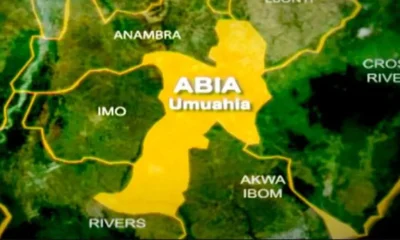

Female student baths colleague with hot water in Abia, victim hospitalized
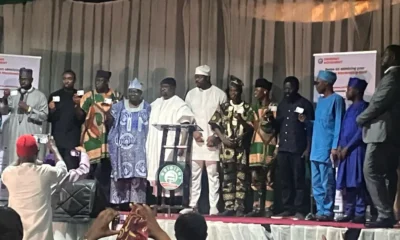

Obidient movement launches online registration portal, identity cards for members


Enugu international airport to reopen on Monday


CNN interrupts Pope funeral coverage for Trump and Zelensky bombshell
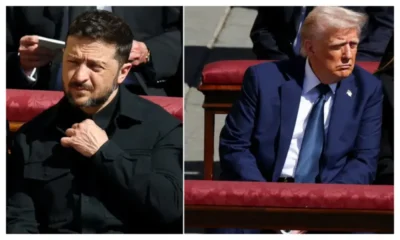

Pope Francis’ funeral: Zelensky meets Trump in Rome


Gunmen attack Anambra community, kill one, burn vehicles
Politics
Obidient movement launches online registration portal, identity cards for members
Published
11 hours agoon
April 26, 2025By
Ekwutos Blog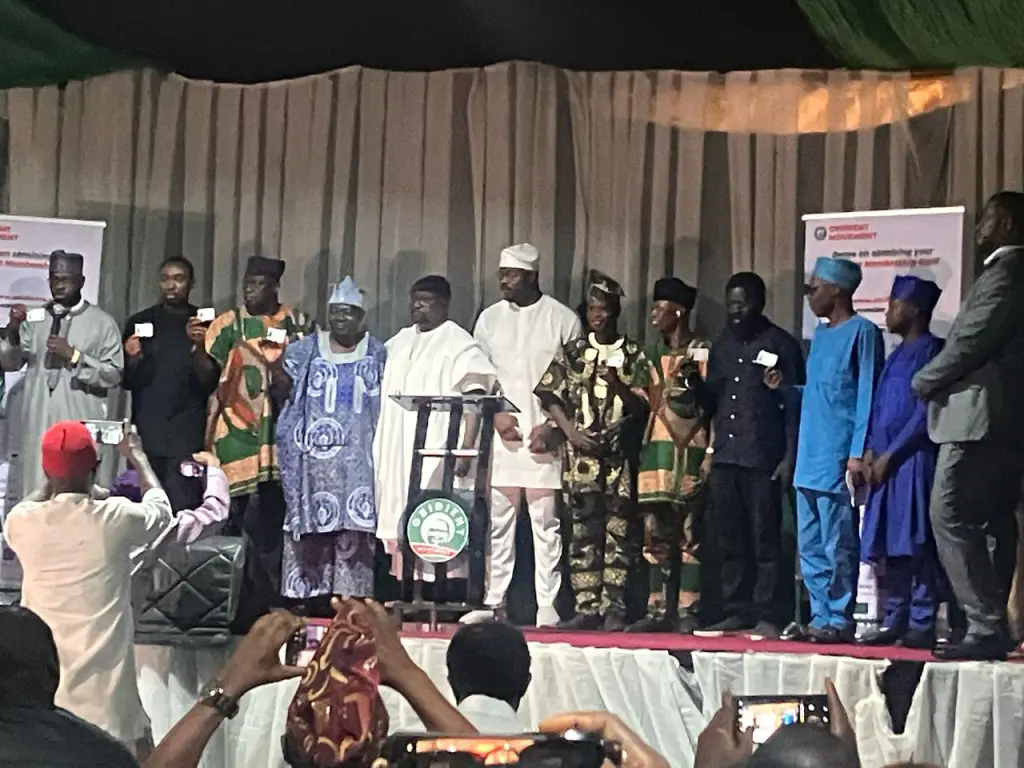
The Obidient Movement has launched its online registration portal and identity cards for members in Nigeria and in the diaspora.
This was disclosed on Saturday in a statement signed by Obidient Movement’s National Coordinator, Dr Yunusa Tanko and Nana Kazaure, the Director of Strategic Communications and Media of the Obidient Movement.
The movement said the identity card will carry the flag of the country where the holder resides.
According to the statement, the identity card has a QR code on the bottom right hand corner for authentication.
The statement reads: “Obidient registration portal supports Nigerians and fellow Obidients living in the diaspora. You will observe that the ID has a flag on it so, for example, if you’re not resident in Nigeria, the top right hand corner will carry the flag of your country of residence.
“That way, we can all witness first hand, the embodying of our spirit of diversity, comradery, unity and how far reaching the messaging Obidient Movement is.
“The OBX is constant on the ID card. The Diasporan and Nigerian card, all start with the same prefix which is the OBX.
“The following characters which are 2 letters and 2 numbers depending on if you are a Nigerian or a Nigerian voter living in the diaspora, who comes in to vote every election cycle indicates your State and LGA.
“It is worthy of note that there are 4 characters. The first 2 letters are for Nigerian State codes (for example Lagos state is LA and Delta is DE). The others are 2 digit numbers which represent the local government area where you are registered.
“If you are Nigerian and you are an Obidient or an individual who identifies with our struggle, our mantra of better sustainable governance all over the world, and our firm belief especially in our country Nigeria where we reaffirm that “A NEW NIGERIA IS POSSIBLE, the card will vary slightly from the Nigerian model because, in this case, the card will carry a 3 letter country code. So in the UK for example, it will be simply read GBR.
“Most importantly, please note that the other numbers on the identity cards are deliberately randomised for the security of our card carriers. So you cannot just guess the Obidient Movement’s codes and numbers. So for example, you cannot expect HE Peter Obi’s ID card to just read 001.
“The QR code on the bottom righthand corner is there to authenticate the authenticity of your card. Which can be scanned with any QR scanner such as a smartphone. This aims, with the intention to give Obidients a secure and confident way of interacting with one another. So if you choose to support or do business with an Obidient, you can scan the QR code or verify the OBX ID online to confirm that the person is who and what they truly say they are and are who they truly claim to be.
“When you sign up and submit your form online, it goes through a verification process. So for example you put in your X handle, it makes it easier for verification.
“In the event you decide to enter into any business dealings or enter into any informal or formal relations we implore you all to please endeavour to carry out your own independent investigations and do your due diligence thoroughly and properly so as to avoid becoming prey to some who may have ulterior and criminally motivated intentions.”
Politics
‘Tinubu’s administration has no achievements since inception’ – Atiku
Published
16 hours agoon
April 26, 2025By
Ekwutos Blog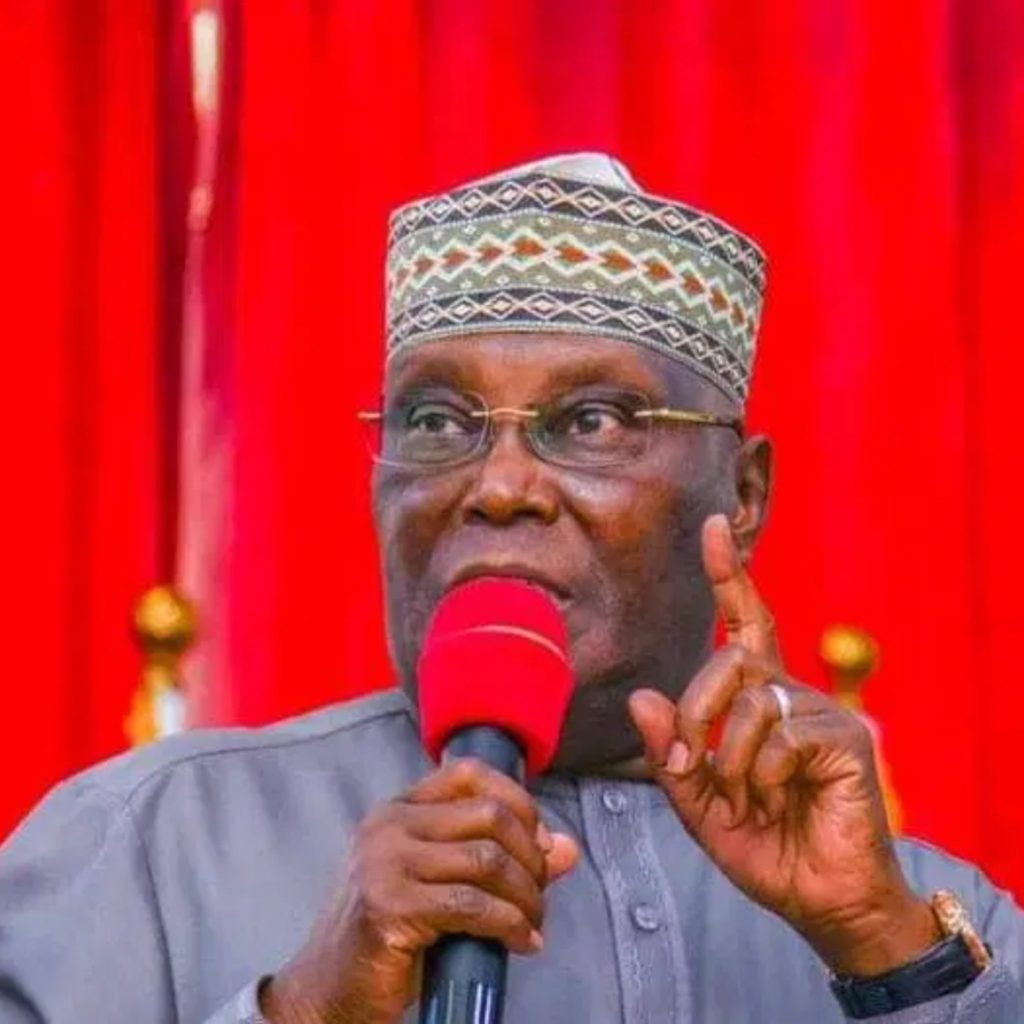
Former vice president, Atiku Abubakar, has knocked the administration of President Bola Tinubu for its economic policies, saying it has recorded no achievement since its inception.
Atiku, who stated this in a statement on his official X handle, said Tinubu’s administration has no achievements to stand on and no credible record to defend, adding that its only strategy is chaos and division.
“Because that’s the last refuge of the incompetent. And make no mistake— an incompetent captain does not only wreck his ship; he endangers the lives of everyone on board,” he wrote.
The 2023 PDP presidential candidate’s outburst comes after recent high profile defections from the opposition party.
Ekwutosblog reports that the Delta State Governor, Sheriff Oborevwori, and the immediate past governor of the state, Ifeanyi Okowa, on Wednesday left the Peoples Democratic Party for the ruling All Progressives Congress.
In the same vein, a member of the House of Representatives, Oluwole Oke, resigned from the PDP and joined the APC on the same day.
While commenting on the next presidential election, Atiku said results would not be determined by political alliances, but by common goals.
“Let us be clear: the coming political battle is not APC versus PDP, or LP versus APC. It is Nigerians versus an administration that has plunged the nation into untold suffering. The economy is in freefall. Inflation is choking the masses. Jobs are vanishing. Youth restiveness is surging to terrifying levels. Nigerians are not just tired — they are angry, and rightfully so.
“This moment is about collective survival. The real enemy is not one another — it is the Tinubu administration’s abysmal failure. We must reject every attempt to distract us with ethnic, regional, or religious sentiments. These are tools of manipulation, designed to divide and conquer, used by those with nothing else to offer,” he added.
The former Vice-President pointed out that the need to speak out on the state of the economy was engineered by calls from concerned Nigerians.
Politics
Kwankwaso: NNPP considering three options – Ladipo Johnson
Published
18 hours agoon
April 26, 2025By
Ekwutos Blog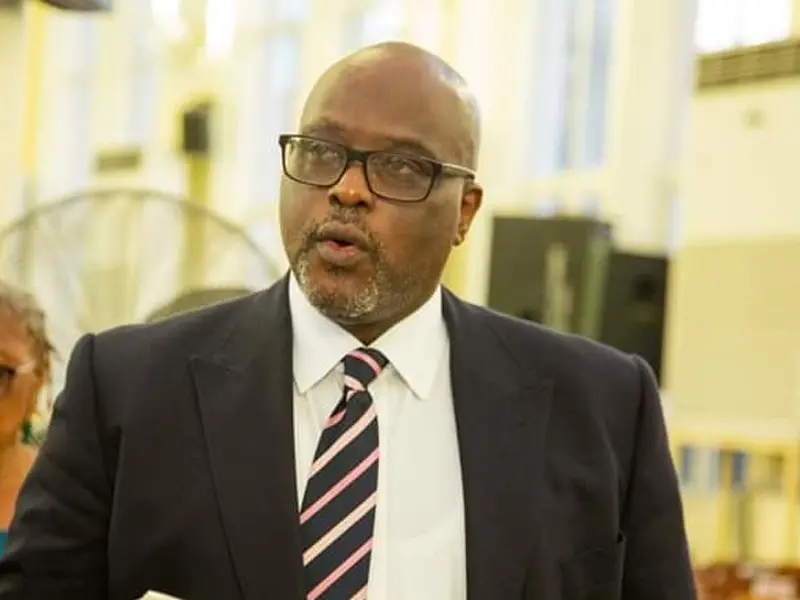
Ladipo Johnson, the spokesperson for the New Nigeria Peoples Party, NNPP, has said the party is considering three possibilities ahead of 2027 presidential election.
Johnson said the NNPP was considering joining forces with the APC, the coalition of former Vice President Atiku Abubakar or standing on its own in 2027.
This comes amid defections from the Peoples Democratic Party, PDP, to the APC.
Atiku recently announced the formation of a coalition alongside his former counterpart of Labour Party, Peter Obi; ex-Kaduna State governor, Nasir El-Rufai and some other politicians.
The former PDP presidential candidate, had his ex-running mate, Ifeanyi Okowa defecting to the APC.
Also, Governor Sheriff Oborevwori of Delta State also dumped the opposition party to the APC.
Ugochinyere urged the PDP’s National Working Committee, NWC, to urgently take steps towards addressing the imminent danger.
He disclosed this while addressing PDP members in Akokwa area of Imo State on Friday
However, Johnson, in a statement said: “Well, so far, what I’ll say is this: in the NNPP, we tend to, at least from our own history as the Kwankwasiyya movement, wait till midterm.
“May 29th will be the midterm for this administration. It will be two years down, and two years to go. That is when we believe that proper politicking will commence.
“So, yes, we are talking, and we’ve been talking. But you’ll recall that at that time, I told you I didn’t want to mention specifically the groups or persons or movements that are in conversation with us. That is still the position now.
“You’ll recall that there have been many publications in newspapers and online, insinuating that Senator Kwankwaso is moving to the APC, that it is imminent and all that. That is just the nature of the game. Some people are pressing or pushing that narrative for their selfish reasons.
“But the bottom line is that very soon, they will begin to hear from us. We will tell our supporters what we are doing.
“There are basically three cards on the table: either we remain in the NNPP and continue with those who joined us all the way or we form some sort of coalition with Atiku, others; or we form an alliance with the ruling party. I
“I am not saying any of these is the case now. But these are the three basic options that could happen.”

Female student baths colleague with hot water in Abia, victim hospitalized

Obidient movement launches online registration portal, identity cards for members

Enugu international airport to reopen on Monday
Trending

 Trending6 months ago
Trending6 months agoNYA demands release of ‘abducted’ Imo chairman, preaches good governance
- Business6 months ago
US court acquits Air Peace boss, slams Mayfield $4000 fine

 Politics6 months ago
Politics6 months agoMexico’s new president causes concern just weeks before the US elections
- Entertainment6 months ago
Bobrisky transferred from Immigration to FCID, spends night behind bars
- Entertainment6 months ago
Bobrisky falls ill in police custody, rushed to hospital

 Politics6 months ago
Politics6 months agoRussia bans imports of agro-products from Kazakhstan after refusal to join BRICS

 Politics6 months ago
Politics6 months agoPutin invites 20 world leaders
- Politics1 year ago
Nigerian Senate passes Bill seeking the establishment of the South East Development Commission.
